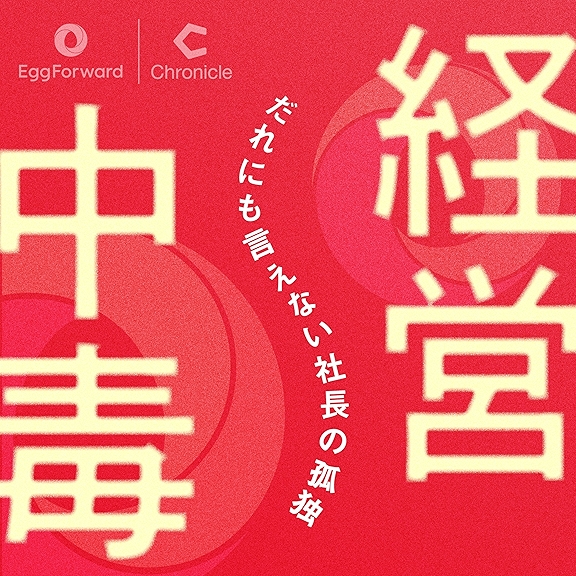
People Buy People: Trust Is the True Currency of Sales
People Buy People: Trust Is the True Currency of Sales Featuring Rob Elliott
The internet has contributed to sales becoming a lost art. We have gotten use to a consumer selecting a button on a website we have forgotten how to talk to them. This may work for more transactional products and services but for high ticket items, you still need to be able to convey how you add value. Be patient, follow up, and develop trust with your prospect.
About Rob
Being brought in the family hospitality business exposed Rob to sales and the importance of community at an early age. Watching his parents navigate difficult customers and the expectations of people while at the same time run a profitable business ensured that when he moved to full time sales roles, he had all the tools needed.
Those same tools have enabled him to become very skilled in public presenting, training as well as giving back to his community through volunteering and raising much needed funds for charities close to his heart. Roberts mantra is “Just be you”
www.thebusinessofbusinesspodcast.com
Full Transcript Below
People Buy People: Trust Is The True Currency Of Sales Featuring Rob Elliott
Sun, 8/1 2:39PM • 36:43
SUMMARY KEYWORDS
people, business, person, sales, pubs, buy, sell, rob, find, call, customer, big, sit, day, coaches, bit, hang, watch, little bit, important
SPEAKERS
Rob, Roy Barker
Roy Barker 00:04
Hello, and welcome to another episode of The Business of Business Podcast. I'm your host Roy. Of course, we are the podcast that brings you a wide variety of guests, I can talk to a diverse set of topics, hopefully we can shed the light on something maybe that you haven't thought about, or if something's keeping you up at night, and we can definitely provide some information and professionals to help you get that worked out.
We want to see everybody be successful. And with all this technology and code connectivity across the world, there's no reason why we can't all be successful and find the information that we need. Today, we're excited to have Rob Elliot he is a sales and business coach, a speaker and a podcaster. He was brought into the family hospitality business, and expose Rob to sales and the importance of community at an early age.
Watching his parents navigate difficult customers and the expectation of people while at the same time run a profitable business ensure that when he moved to full time sales role, he had all the tools needed. The those same tools have enabled him to become very skilled in public presentations, training, as well as giving back to the community through volunteering, and raising much needed funds for charities close to his heart. Roberts mantra is just be you, Robert. Rob, welcome to the show. Thank you for taking time out of your day to be with us.
Rob 01:31
I thanks very much. Thank you so much again for the interview.
Roy Barker 01:34
You bet you bet. So we're excited. You know, we we don't get to talk about sales a lot here. And I think it's a lost art in the last few years in this digital world. But before we get into that kind of tell us a little bit more about your background, you know, the family business, kind of how you navigated through that to get where you are today.
Rob 01:55
Look, I was always born in pubs, as you know, in Australia, a huge thing and my dad was actually a electrician by trade. And he was he was looking for something slightly different. And you got offered a traineeship. Back then to I get in the pubs and I think I was probably five or six I was just a little fella running around upstairs and the dad ran and owned hotels for like 25 years with mum. And you like any family business you got brought up in it.
And my mum and dad were very opposite. There was a big man, gentle giant and bless he was pushed. And mum was more of a call a spade, a shovel type of person, she was black and white. So it was the Ying and the Yang. And it was actually great because I pubs in those days in Australia, especially with tough places, you had to through what you would call putting out a persona out there, you had to be able to throw people out of a bar without attaching them and now are bigger and stronger than you.
You had to make someone feel when they walked into the pub, that they were the only person they know they were the most important person. So I watched on our loan. And it was amazing. I don't think I realized how much I learned until we finished. I mean, we saw their power mom passed away. And we got out of the industry and I would have loved to stay in. But I stayed in the liquor industry. And I went into business with my father and his partner and we worked what we call a bottle shop.
Over here we come and buy takeaway liquor that you don't buy anything else. So and that was interesting as well, because I was put between two best mates who never should have gone into business together. You know, and that's and that's so true. Yeah,
Roy Barker 03:37
yeah. Yeah, it's interesting. Because you know, that bar business or pub, you know, it's, it's challenging, because you have to feel very welcome. I think that's why people continue to go to the same place because it's that welcoming. And I think, you know, we had a show years ago, cheers that probably was a little bit over the top. But I think the concept is that, in that environment, people want to go where they're known where they feel welcome, where their other friends and mates are hanging out, you know? Yes, not a lot of people just want to go and drink over at the end of the bar in solitude.
Rob 04:13
Nah, look, in Australia, there's no such thing as solitude if you're standing there by yourself or someone's likely to walk up and say get a in over chat. You right there, you're right there in cheese. I actually use cheese when I'm doing training, the actual theme to it and people listen to it. I say now tell me what's in the theme. Everybody knows your name when you feel welcome and all that I said, you can take that and put that into any business. Right?
It can be a sandwich shop, it can be a bed store. It can mean accountants firm. Yeah, you take the same principles that they built cheese around, which is what they build every successful business around. And all of a sudden every member of your staff is selling. Yeah, all of a sudden, every time it doesn't matter who they come in contact with. Too many businesses today have forgotten that everybody in the business is part of the sales chain, as we call it, right?
Roy Barker 05:08
Yeah. And we go to a little restaurant not far from the house, and that's fine. We go this, you know, it was a lady that started this business after her. Her husband had passed away years ago. We go in because her and the staff, they, they treat us like we're going to our friend's house to eat. Yes. And it's just so pleasurable.
And I think, some of this, I don't know, I, I'm older. So sometimes I wonder if I'm just starting to talk like an old man, like, you know, this digital age has taken a lot of that person personable, touch away. You know, I've spent a, we were always taught to speak to everybody on the street, hey, how, you know, nothing but more, Hey, how you doing? And, you know, I said, hated this person one day in a store.
And then I, what do you want, they were so defensive about just, you know, just like, a little, you know, just a little bit of greeting basically was nothing more. But I think that we, you know, because on the flip side of this, we do business with people who we like, I think, we maybe see a little bit of ourselves in them, and we want to see them be successful. So it's kind of funny that we've lost that, that personal touch point when that is so important to the sales process.
Rob 06:28
Look, there's a mantra that we all go live by, and then his people by people, right, they don't buy the product, they don't buy the price. Yes, if it's a transactional sale, that's fine. But if you're doing somebody that, that purchases important to you, it doesn't matter how good the product is, it doesn't matter, the price doesn't matter, the company, if the person you're dealing with or the person's website you're dealing with, or the telephone person you're dealing with isn't up to scratch or you don't like it, you won't buy it. Right, right.
Roy Barker 07:01
Yeah. And always think about the follow through because I think, I think if you don't give me enough effort to even try to take my money, what is it going to look like after I buy the product or service if something goes wrong, or if I need support. And so I don't think we think through that enough that we have to give enough attention on this front end to make people feel comfortable that we're going to be there on the back end as well.
Rob 07:26
All look so true. I want to buy a new mobile phone about 12 months ago, and I've been with the same carrier in Australia, probably 10 years. So there's three main carrier carriers in Australia and I went down to the shop you know, those beautiful branded shops and all it is all lovely, it's all this little that and I walked in and saw some of the phones and I said the one of the guys you know, can you tell me what the phone is? And his eyes lit up and he started rattling off this and that and stories and this and everything? No, I I never once asked me was my plan out. never asked me what I wanted. Or a kid watching all the people will pass out the front.
Roy Barker 08:05
And I just went thank you and walked out around the corner to the opposition. Yeah, he never engaged never asked a question never did anything. Now. We used to do a lot of mystery shopping and I would have that going into establishment and they wouldn't even ask my name or contact information which was you know, strange because I feel like we need to know people's names at the very least even if I'm not gonna write it down. Just so we can engage on a personal level not just Hey, you
Rob 08:37
I think a lot of the kids today have been spent too much time with their head in the phone, right too much time on their laptop and forgotten the art of communication. And it are not saying that you know what, they they shouldn't be on their phone and that's fine. I'm on my phone to your on your phone. You know, that's how we do communicate. But if they can't turn around and communicate to people in business, what the hope Do they ever have of getting married and having a family right what are they gonna do text the girl or guy across the bar their name, but they don't know their number. So you know, that falls over here. Right? Right.
Roy Barker 09:13
Yeah. When if you're going to be in a successful relationship you bet. Well, as a man, you better learn to communicate, but you need to do a lot of listening. Listening. Yeah. No, I saw you know, one of the funniest memes I ever saw was this little kid laying in bed and she texts her mom, would you text me a bedtime story and it's, it's funny, but it's sad in the same respect that you know, we've kind of moved to that point.
Rob 09:41
I was I was sitting back before COVID Hill sitting with my wife Rachel down at Darling Harbour which is the big harbor next to Sydney CBD so it links into the beautiful Sydney Harbour and it's where all the restaurants and the pubs and the bars and the lovely shops and we were sitting there looking at over Sydney Harbour the most It is one of the most beautiful places in the world. And a seafood restaurant. Great view. And we looked out at the table makes to us there was two, there was three millennials. I think they spoke five or six times the whole time or on the phone. Yeah. They weren't, they weren't experiencing life. They weren't watching what was going on around them. Yeah. So sad.
Roy Barker 10:21
And when we go out, that's one of our experiences. As you know, that's time we put all the phones away, and we get to set and interact, enjoy the environment, and everything around us, it's so important to me, let me just say that it's important to me to feel fulfilled in life. And I guess that I'm like, you, it's hard to see people go out to eat and, you know, they're just both on their phone text and, and not even paying attention to each other, you could have stayed home and had TV dinner for that.
Rob 10:47
Well, I might as well I've seen staff in shops doing the same thing and saying, hang on a minute, I'm just finishing my text.
Roy Barker 10:54
So, um, you know, this. The other thing I think that the internet has brought us is instant gratification. And I see this a lot in the sales process. But, you know, there, we used to kind of use the agrarian model, say that you had to plant the seed, then you had cultivated, and then you harvested. And I think all the times that we've skipped from really not even planting the seed, we just go straight to the harvest, like, you know, are you ready to buy? Oh, can I get you to sign up and think that, you know, we're missing so much in the middle there.
Rob 11:31
I think there's two sides of the story, the customers, especially the younger customers, do have a shorter attention span. And so if you don't get them very quickly, you don't get them at all. And that's the way they are. But when someone shows him as what we call a bit of love, they respond very quickly. I if you get a someone who's never been in sales before or just started out, and they get hung up to get this sale inside them, they jump from the start to the end, they forget is what we call discovery. They forget to ask the person Why are you making the purchase?
What is it is this important about the purchase, and you can do that in a five minute transaction in a shop that sells shoes, or you can do it in somebody's gonna buy a car, right? It just comes down to practice, and it just comes down to opening your eyes and your ears. And when we were given two ears, you know, we'll give him you know, one mouth for a reason. And that's exactly how much you should talk. Yeah,
Roy Barker 12:27
yeah, no, I love that reference about the two ears and one mouth, because a lot of times as sales, you know, we think we have to do an information dump. And if I see your lips moving a little bit, I need to talk faster, because I gotta get, I gotta get all this stuff man, and Hatcher be detrimental. I've listened to some calls that you hear salespeople, you know, what I call run through a stop sign. And this was the this was like a senior living community where the goal of the phone call was to get somebody to come visit.
And so the salesperson was going through and you know, after a couple minutes, she's like, Oh, yeah, this sounds good. We really need to come visit. You know, I mean, that's like the answer. Okay, well, if you could just hang on just a minute, I want to tell you, and she kept going. Yes. And then the customer or the prospect again said, Yeah, you know, all this sounds fantastic. We just really needed to set a time when you're going to be there and come visit. Okay. And you know, we also offer this and she just kept on going.
And so I think we have to, again, this gets back to that good listening, that we have to listen for the signs that they've got the information that they need or feel like they need and a lot of it depends on our goal. But like in this, she was wet, ready and willing to come in where we could be face to face. But salesperson had a script, I'm sure that they were just felt like if I don't get through the script, I haven't done my job. We call it overselling.
Rob 14:00
We people, a person stops listening, just keeps going. And I think we've all been guilty of it from time to time, especially when we first started out in the industry. Yeah, you just get excited. You just keep going. I've got to tell him this, I've got to tell her that. I've got to do this. And all the time the person is just saying I'm ready to buy.
Roy Barker 14:19
Right. Exactly. Yeah. Yeah. You know, I'm talking about discovery. It depends. You know, I think if we're selling lower price products and services, people are willing to gamble. I would, you know, I would buy a $10 product or service and take a chance that it's going to be okay, but when we start talking about, you know, 5000 10,020 $5,000 products and services, typically not a one touch, you know, close the deal type scenario.
And so, when we talk about discovery, it's not only so we can win my opinion is not only so we can kind of pitch our conversation to the needs and the wants of the individual. But if we're thoughtful enough, we can get some good information for follow up, because the chances that we're going to need to follow up with the phone call or an email is highly likely. And instead of just saying, hey, Robert, this is Roy, talk to you last week, are you ready yet? You know that, and I still get those calls to this day.
But we can say, Hey, you know, I know that you go out the you know, you go out to eat by the harbor, you'd like to go out down there and sit and have dinner, you know, we have a little bit of personal information that we can actually have a conversation with. Look, the best people that do this are the real estate agents if they're trained, right?
Rob 15:45
If you ever watch like million dollar listing New York or LA, they have guys and ladies on there that are different levels, but most of them are multimillionaires themselves. But a well trained real estate agent will turn around and say to you if you're visiting your home, so what do you like about the home? And you'll start saying this, but automatically, Simon also what they don't like, and people don't realize is what they're doing is they're not trying to do anything wrong. They're qualifying you. So if you don't like this home, I've got this other one, right.
Give us your email, give us your name. And I'll send you over the details. And if you want to have a look at it, let me know. And we'll put you in, that means he doesn't lose the sale. She doesn't lose a sale. Right? And it's exactly what you're talking about. You get that little bit more information. We call them open questions. Never a closed question in sales always open never yes or no. Right. And unless you're closing.
Roy Barker 16:44
Yeah, and I think this even plays into if we lose the opportunity up front and talking about a real estate. You know, I've got a great example that happened a few years ago, where I was selling a house, I interviewed a couple of agents found one I like she was young. She was an older person, but young in the business. And she just seemed very hungry and very eager. So I ended up going with her. And things just didn't work out. It was a total disaster. But there was one lady, one of these five people that I had initially talked to, when I told her, you know, sorry, I'm going with this other person, she never quit.
She never called me and said, You don't need to take this over. But she would send me information. Here's some information about the market in your area. I thought you might find this useful. And even would send me like a recipe. You know, this was around the holidays. So she had sent me, you know, like a cider recipe or something. But this lady dripped on me every week. And guess what? When this other deal blew up? She was top of mind. She's who I called him, she can market herself to me like this. What can she do with my home?
Rob 18:01
Look 100% right, they made the best way to sell is not to sell? Yes. She didn't sell. But she sold. Right. She put she kept herself in front of you. Yeah. It also means that when you went to sell, you're going to be looking for something. Guess who was the first person you're gonna call to help you find a new place? It's going to be her.
Roy Barker 18:22
Yep. And I think this resonates through a lot of industries that maybe I'm just not ready. I may love your price on a love your product. But you know what, it's just not the time for me, I've got either other expensive things that I'm purchasing or the thing that you're selling. Mine is not worn completely out yet. But and so what I guess where people you know, they make the one phone call, and then they quit.
They're not there. And that's one thing I try to teach is that it's so important just to keep dribbling because you never know when they're going to be ready. We can't anticipate but they're gonna go with who their top of mind with not. Remember you may be from six, eight months or a year ago and try to think back on who that guy was.
Rob 19:10
Well, if anyone listens, especially your American audience, Tom Brady, he was the third quarterback when he started out and all he did was hang around, kept training. He did the stuff before and after he picked up after everyone. He just hung in me. Yeah. And when the opportunity came and the number two was was was couldn't do it. He got in and look at he Yeah. You just got to hang around without without going over the top without being a pest.
Roy Barker 19:40
Right. Yeah, we just lost a an awesome musician who's actually from here in Texas. dusty hill with Zizi up I don't know if you if you've ever heard of them but so anyway, he unexpectedly passes away and there's a guitar tech it's been his his He has been his guitar tech for 30 years. Wow. And that was dusty, evidently from raw I have read that was his last request is that my guitar tech take over this position.
So 30 years as a guitar tech behind the scenes, and now one day, you know, they're not as big as they weren't my youth. But still, it's a pretty well known name that he has stepped up to be on stage. So I think that you know, the perseverance and just never giving up. But also having that knowing where the middle is, of being a pest, and being consistent, because there is a fine line in between there.
Rob 20:40
I mean, if you want to, we're now we're in the middle of the Olympics. At the moment, you've only got to look back to the Winter Olympics two years ago with Steven Bradbury from Australia, who was sitting fifth in the ice skating, and everyone in front of him fell over. And he skated through and got the gold. Yeah, he was good enough to be there. He just waited for his opportunity. And that's no different in sales or business. Right?
Roy Barker 21:04
Right. So what is your strategy? If you're reaching out to people cold? Are you? Are you more of an educator, I find myself being more trying to educate people, not only in the beginning, but also, you know, as we go through time.
Rob 21:21
Look, I, when I first meet someone, I just asked a few questions how their business is going, and they got new challenges, and I listen, and I never take a client on that I can't help. But I'll help them find someone who's best for them. Because we're coaches and advisors, coaches aren't experts. But what we just like the casual football side, or a cricket side, or whatever your sport or business you're in. The person who knows their business the most is the person who and they know how to cook the cake.
They know how to do the books. So what we do is we sit there and listen and watch, and then help them discover the best solutions for what they're doing. And then if we can't find it, and they can't find it, we go out and find it for them. So I like to find just one thing that they need help with. Yeah. And it's and it's like, I suppose you call it the chink in the armor. But if I can help someone just fix that one thing that can turn their whole business around, well, that's I've done my job and actually puts a big smile on my face as well. You know,
Roy Barker 22:24
and sometimes we just need somebody to talk to and talk things through. I think it makes a there's a couple big, larger than life personalities, you know, Bill Gates, Steve Jobs. But what a lot of people don't realize is that they had other people that they worked with, in the beginning, they kind of rose to the top and were the public figure. But you know, for me personally, it's always good to have somebody I can trust to bounce ideas off. Or, you know, when you get down say, well, this thing is really crushing me. You just get a little bit of a lift. Anyway, it to me, it's very important. They've all got couches. Yeah.
Rob 23:10
People behind the people, right? They've all got mentors, coaches and advisors. Every single one of them. Yeah. Even Tony Robbins. He's one of the best known coaches in the world has got coaches. Got a coach? Yeah. Because as we say, in Australia, you got to have someone that's willing to call you out. We say a little bit differently, but I'll keep up the polite version. You got to have someone and it can be a maid that just sits you sit there and talk to Yeah, it can be a friend, it can be another business person in the same business as you and you become each other's Yeah. And then and then that's when you start to after that you'd start looking for getting professional coaches in that really can save you time and money.
Roy Barker 23:53
Yeah. Yeah, I think that's an important point that you make is you don't want somebody that's just a yes man or not, you know, you're the best You're doing great. Keep on I mean, you know, we need that cheerleading for sure. But, you know, if I tell you that, you know, I want to sell ice cream, you know, down around the equator, you know, with no electricity, the keep the stuff frozen. You need somebody that's going to say is that really, you know, the best use of resources?
Rob 24:24
I'll look, I've said I've had people come to me complaining about their opposition, doing so much better than them. And I said, so why? And they start making excuse after excuse now, it's a setup because when we asked a user word why a person goes into what we call justification mode. So if you're doing one on one personally, personal coaching you don't use that word. He is what made you or you will use other words, so either internal or inside of them, so they're obviously doing something you're not what is it and you know, Watch the blood drain out of the face. And I get why I get a bit clammy. Because we've called him up. And there is always something else.
Roy Barker 25:10
Right? Right. Yeah, cuz like we were talking about earlier, if even if you're dealing, if you're dealing with somebody that you like, and you trust them, I'll tell you personally, I'll pay a premium for that, because it's hard to find. And because I see a lot of, you know, most sales, people that are struggling, the first thing they talk about is, well, this other company is undercutting me. And so, you know, typically, it's always pricing related. But, you know, what I say to and I'll get your opinion on this is, if you're competing on price, you're, you're in a losing situation, because there will always be somebody trying to come along and undercut you, we have to try to sell on value, what value do we bring to this problem that we're trying to solve?
Rob 25:56
will look, if you want to look at analogy there, I completely agree is cars. If that was the case, you would only have cheap Chinese Kia, ion di cars around, and Mercedes and BMW would be out of business. Right? So they all do the same thing. They all get you from one place to another. Right. But, you know, it's it's a case of you get what you buy, you get what you pay for. Right? And it's got nothing to do with price Really? In the end? Yeah,
Roy Barker 26:26
yeah. Yeah, it's usually typically what I've seen. And it's our messaging is that, you know, we, we need to really take the time to explain our value proposition, what we bring to the table, how we can help you, and then how, you know, if your follow up, what your follow up is, anyway, a lot of room in there to work besides just what's the price,
Rob 26:47
and you've also got to be willing to walk away, if a customer's fixated on price, he's gonna want your best of everything for nothing. So I tell people walk away. Yeah,
Roy Barker 26:57
I was just fixing to bring, I just jotted that down when you earlier, when you said you'd like to, you know, the people you'd like to work with is that it's important that we have people that are on our same philosophy level. Because if not, what I find is it just you can make a bad customer, you can make a customer that drains your time, drains your energy, and you end up firing later in the process anyway. And so, you know, like the price thing, I find this interesting, because of the law of, I guess of scarcity is that sometimes when you say, maybe this just really isn't for you. And then all of a sudden, you know, when it's about 50% of these people, then they get their backup? Well, I'll prove to you why it's for me.
Rob 27:49
Look, people do attract people who are very similar to them. Yeah, that's natural. And we can call it nation, you can even call it you will want to do business with people who are close to who you are. And I'm not talking about selling your hammer and getting those, you know, those small transactional sales, but you will find people in any type of service business. Normally their customers are aligned very close to who they are and what they stand for without them even knowing it. And the universe has a funny way of delivering to you those who see. Yeah.
Roy Barker 28:27
Yeah, it's interesting that and I guess the converse of that is, we also need to be careful who we surround ourselves with, because, again, I'll let you speak to it. But typically, we are the, the average wage earner of everybody who we surround ourselves with,
Rob 28:49
how lucky you are and all you've heard it so many times you are the five people you surround yourself with. People think it's a cliche, it's actually not it's fact. Yeah. And you can learn so much if you've got a good support group around you, you can learn so much and support each other. And I said to someone was Annie the other day, they were talking about our had a really good week, and I'd went down to the pub and all that and one of the guys was a bit of a negative Nelly. And I went I said, you know, what was his point knew I Oh, you'll never be any good.
This is as good as you're gonna get. I said dumping. So what do you mean, it's a dumping? I said, All he is is a black hole. It's sucking all your positive energy out and leaving you with negative, right? I said, you don't need him in your life. I said, He's your he's putting self doubt into you. And that's the same in business. You can have your personal friends and your business friends. Your Business friends are there to support you. If they're not being that way. I know it's brutal, but you need to surround yourself with people who are gonna lift you up.
It's an assignment to add basis if you're working with people. Don't hang out with people who sit there and moan and groan at the office cooler about how everyone's bad Hang out with the guys who are quietly sitting down the back, getting their budgets, having a good time. And with a big smile on their face.
Roy Barker 30:08
Yeah. Yeah, definitely good advice. So we're getting close on time, what are some other tips that you'd like to, you know, give out to people in the sales area?
Rob 30:22
Look, I believe in also giving without expectation. And I looked at two ways, don't be afraid to provide value to someone, even if they're not going to buy for you. Because that person that may not buy off, you may refer, right? Someone tunes Hello, this guy's honest, he's good guy to him. Yeah, I also believe strongly being part of your community. And I don't mean picking a charity and donating money, just so you can put it on your website to say hi, right? Find a charity or cause it can be helping out the local baseball club, it can be helping out homeless youth, it doesn't matter. Yeah. Get and be part of your community.
But if you do it very quietly, people will notice you might not think so. Yeah, but they they look over, they say you know what, he owns a local bead store. And he's Danny helping us give out meals and look after the homeless, but he's not seeking anything for it. And without, you will get back three or fourfold without a blink. So that's just one of my mantras. And the last one is, of course be you don't try and be someone you're not.
Roy Barker 31:32
That's one of my favorite sayings is be you everybody else's taken. You get it? You know, I think that, you know, the bigger point of what I just heard you say is that, you know, we kind of even getting back to the people, we surround ourselves and we, we really are that energy, you know, we we whatever we put out in the world, that is what we get back.
And that's kind of careful to, to pick that. But the other interesting thing about, you know, even providing value to people that may not be your customer, because I hear people scared, like, Oh, I don't want to give this away, you know, the secret sauce and don't want to tell them too much. They may do it themselves. And you know, my point always is, if they're going to do it themselves, they're going to do it themselves.
Whatever you tell them, they help them a little bit. The other thing though, at giving information is we may actually educate somebody why they shouldn't try to do it themselves that, you know, if there's little intricacies or, you know, like myself, I'm a do it yourselfer. But when I get jammed up, you know, I think about the people that have helped me along the way, you know, and I call them to come, you know, clean up this mess that I've, unfortunately, we're all guilty of that from time to time, right.
But we don't like to admit it, we mean, yeah. Thanks. Rob, I appreciate you taking time out of your day to be with us. It's been awesome speaking with you. What is a tool or a habit? What is something that you use in your daily life that you feel adds a lot of value?
Rob 33:12
I think one of the most important things is is I call it taking time for yourself. Everyone should take 10 minutes every day, turn the phone off. Fine. I've got a favorite spots and a couple of parties, I can just sit turn everything off radio, put a little bit of music on and just chill. Now, I call it a reset, especially if you're having one of those days where things just aren't going right. Right? Or take the time to celebrate a good week. But take five to 10 minutes to be you to look after you every day. And I'll tell you what, within a month, you'll be a different person. Yeah.
Roy Barker 33:54
Self Care is so important. You know, a lot of us are guilty of, you know, being givers we want to give and get but we can't give our best if we're not at our best. So 100% 100% All right, awesome. Well, that's good advice to those out there. So I certainly do appreciate that. So tell everybody, who do you like to work with? How can you help them? And of course, how can they reach out and get a hold of you.
Rob 34:20
I like to work with people who are open, who are willing to be honest, who just want to improve and be better at what they do. Doesn't matter what their business is. I like them to be able to come to me and go, hi Rob. This is where I'm at. How can you help me or how can we work together? And that means more to me than anything. He then after that? Look, I say look can look my website, you know Rob Elliott.com.au have a look on my Instagram, you know, see what you do. And then come back to me with four or five things that are concerning you in your business or concerning you in sales. Okay, and then we'll sit down work through But pretty relaxed, very chilled. But also I'm not here to be your friend.
Roy Barker 35:06
Exactly.
Rob 35:06
But I mean, that's where people use You said yourself before you can employ anyone to, to buy smoke to tell you how good you are. Or you can sit say with someone and go, what do I need to improve? And the very what we call brutally honest. Right, right. And you've got to be brutally honest and being brutally honest to me. It's showing love. Yeah. And I do I everything I say to someone comes from the right place. So that's how I look at people and I manifest them and they come to me.
Roy Barker 35:35
Yeah. No, I think that's the important the outlet that we come to you with that, you know, we have to be wanting that help and want really get to the root if, if all I need to know is how good I am like to go see my mother. She'll tell me that. She'll tell me that every job. Yeah, my mom was also good at telling me the other side. All right, Rob. Well, thanks so much for taking time out of your day y'all reach out to Rob see how he can help you.
You know, get your business on track help you in that sales process. I know he do work wonders for you. So again, thanks so much. that's gonna do it for another episode of The Business of Business Podcast. I'm your host Roy. You can find us at www.thebusinessofbusinesspodcast.com. We're on all the major podcast platforms, iTunes, Stitcher, Google Spotify, we're on all the major social media platforms, as well hang out on Instagram a little bit more. And then also a video of this




















